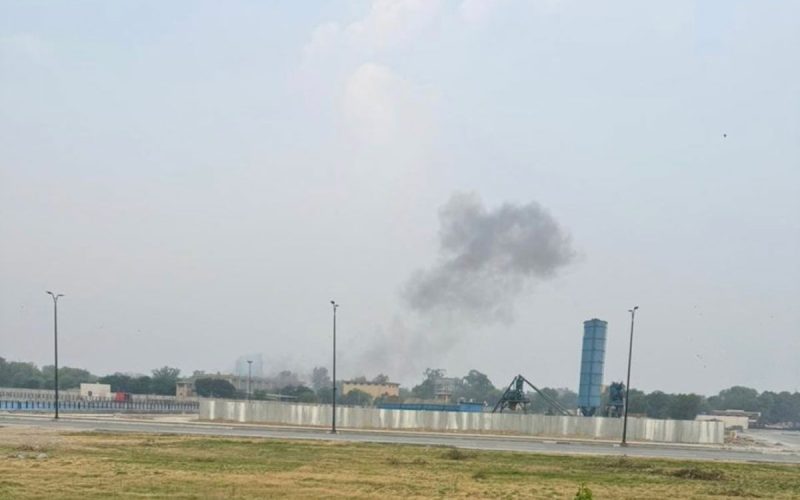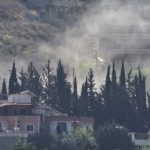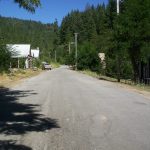Explosions Shaken Lahore
On Thursday morning, Lahore, Pakistan’s vibrant cultural capital, was jolted by a series of powerful explosions near Walton Road, a high-profile area close to the military airport and the city’s central business district. Residents of Gopal Nagar and Naseerabad awoke to three loud blasts around 7 am, sending plumes of black smoke into the sky and triggering widespread panic. Emergency sirens wailed as police and fire brigades rushed to the scene, quickly sealing off the area and establishing a security cordon. The blasts occurred near the Pakistan Navy War College and the bustling Model Town Park, amplifying concerns due to the proximity to key military and civilian sites.
Airports Closed, City on Edge
In the immediate aftermath, Pakistan’s Airports Authority suspended all flight operations at Lahore, Karachi, and Sialkot airports, impacting both domestic and international travel. Passengers were urged to contact airlines for updates, as the city braced for further developments. The shutdown underscored the gravity of the incident, with authorities prioritizing public safety and the integrity of critical infrastructure.
Rising Indo-Pakistan Tensions
These explosions came just a day after India launched “Operation Sindoor,” a coordinated tri-service military operation targeting nine terror camps in Pakistan and Pakistan-occupied Kashmir. The Indian Air Force executed precision strikes, aiming to dismantle infrastructure linked to groups such as Jaish-e-Mohammed, Lashkar-e-Taiba, and Hizbul Mujahideen.
The operation was a direct response to the April 22 terror attack in Pahalgam, Jammu and Kashmir, which claimed 26 lives, including 25 Indians and one Nepali tourist. Indian officials described the strikes as “focused, measured and non-escalatory,” deliberately avoiding Pakistani military installations to limit the risk of broader conflict.
Panic and Uncertainty
Residents described scenes of chaos as people fled their homes, fearing further explosions. Social media was flooded with videos showing clouds of smoke and emergency vehicles converging on the affected neighborhoods. Many expressed shock at the incident’s scale and location, with one local business owner recounting, “We heard three blasts in quick succession. Everyone ran out-children, elderly, everyone was terrified.”
Official Response and Ongoing Investigation
Authorities have yet to confirm the exact cause of the explosions. While speculation is rife, there is no official statement linking the blasts to the previous day’s airstrikes. Security forces are combing the area for evidence, and the city remains under heightened alert. The lack of clarity has fueled anxiety, with many residents and observers fearing the incident could signal an escalation in hostilities between the nuclear-armed neighbors.
Historical Context: Lahore’s Vulnerability
Lahore has historically been a flashpoint during periods of Indo-Pakistani tension. Its strategic location near the border and status as a major economic and military hub make it a potential target during crises. The city’s residents are no strangers to heightened security and the threat of violence, but Thursday’s events have revived painful memories of past attacks and raised urgent questions about civilian safety.
Stories from the Ground
Among those affected was the family of Ahmed Raza, a shopkeeper in Naseerabad, who described the fear gripping his children as they took shelter under a table. “We have lived through difficult times, but this felt different. The blasts were so close, and we didn’t know what would happen next.” Across the city, schools and businesses closed as a precaution, and many families opted to stay indoors, monitoring news updates for further information.
International Reactions and Diplomatic Ripples
The explosions have drawn swift international attention, with diplomatic missions in Islamabad issuing advisories to their citizens. The incident has also sparked protests abroad, with demonstrators gathering outside the Indian High Commission in London, waving Pakistani flags and demanding accountability.
Security, Surveillance, and Civilian Resilience
While much of the coverage has focused on the immediate aftermath and geopolitical implications, less attention has been paid to the city’s resilience. Lahore’s emergency services, often stretched thin, responded with remarkable speed, and community organizations mobilized to provide support to those affected. The blasts have also reignited discussions about urban security, surveillance, and the need for improved coordination between civilian and military authorities.
As investigations continue, Lahore remains tense but determined. The blasts have underscored the fragility of peace in the region and the urgent need for dialogue between India and Pakistan. For now, residents are left grappling with uncertainty, hoping for answers and a return to normalcy in a city that has seen too many such days.





